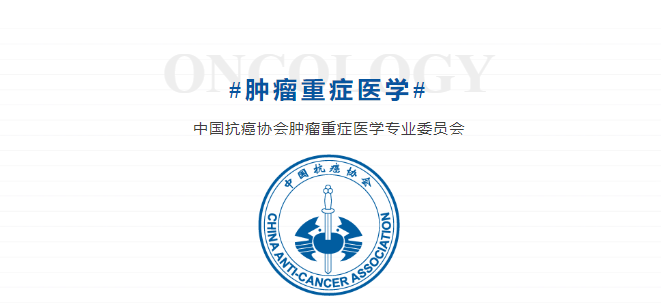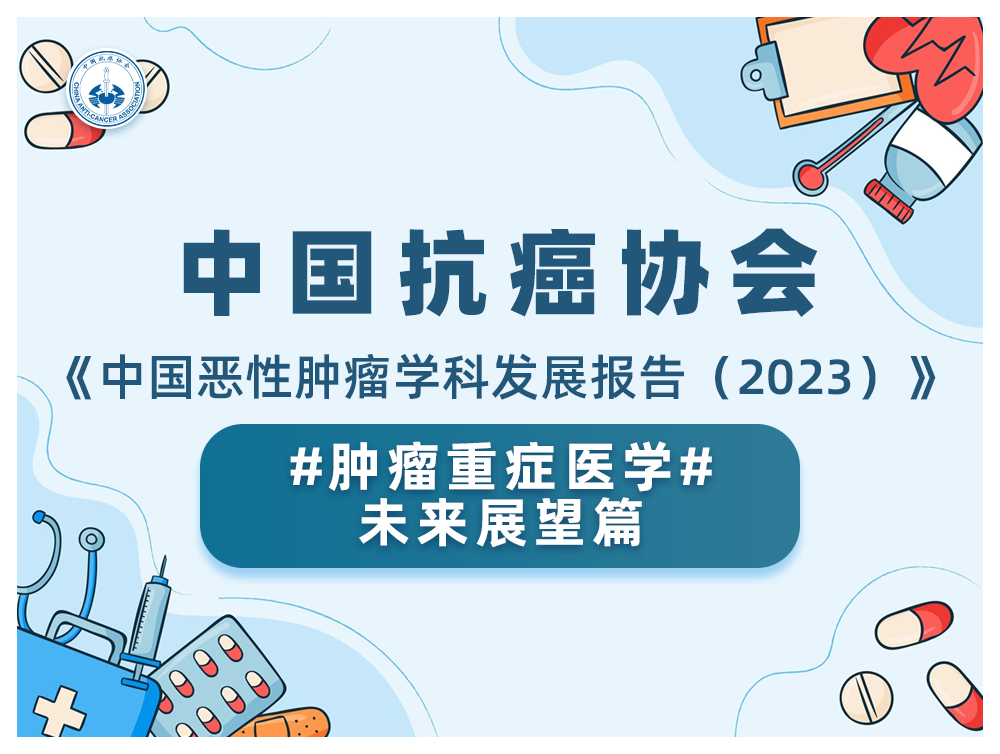中国抗癌协会
立即下载App《中国恶性肿瘤学科发展报告(2023)》——肿瘤重症医学未来展望篇


本学科发展趋势与对策
01
未来5年发展的战略需求
肿瘤免疫治疗是癌症治疗的新曙光,也是最成功的疗法之一。该疗法通过提高自身免疫系统对肿瘤细胞的识别,刺激机体产生特异性抗肿瘤免疫反应。免疫治疗包括分子靶向治疗、免疫检查点抑制剂治疗、过继性免疫细胞治疗等。随着肿瘤免疫治疗研究的不断深入,相应的治疗手段(如PD-1、LAG-3、CAR-T细胞治疗等)不断推陈出新,在各类癌种应用的临床试验在陆续进行,药物的适应证正逐渐扩展;此外,各种药物的联合应用也为肿瘤治疗疗效的改善带来了新的希望。
免疫疗法在临床上更广泛地应用后,各类问题也开始浮出水面。免疫治疗在抗肿瘤的同时,还会杀伤正常细胞,导致免疫不良反应的发生。免疫不良反应会累及全身各个器官系统,发生率高,根据严重程度分为5级,当不良反应≥3级时,被称为重度免疫不良反应。重度免疫不良反应预后差、致死率高,是肿瘤患者临床管理的重大挑战。
综上,免疫疗法在不同癌种、不同联用方案的新尝试以及免疫不良反应的防治是未来肿瘤重症发展亟待解决的关键问题。
02
未来5年重点发展方向
为了应对免疫治疗新疗法和免疫不良反应相关研究的战略需求,未来的重要研究方向分为以下三点:(1)免疫治疗在新癌种的临床应用;(2)免疫疗法与传统疗法/免疫疗法的联合应用的安全性及有效性;(3)免疫不良反应的激素疗法和二线疗法研究。
03
未来5年发展对策
针对研究发展方向,相关的对策如下:(1)召开中国抗癌协会肿瘤重症全国学术会议,制定免疫治疗不良反应的临床管理的指导指南;(2)收集全球免疫不良反应病例报告数据,开展全国多所医院ICU学科的流行病学调查,归纳总结免疫不良反应激素疗法和二线治疗的最佳策略。(3)在全国多地区不同级别医院的ICU进行多中心临床试验,验证免疫治疗在新癌种应用、免疫治疗不同联用方案以及免疫不良反应治疗推荐策略的安全性和有效性。
【主编】
王常松 哈尔滨医科大学附属第一医院
马 刚 中山大学肿瘤医院
王东浩 天津市肿瘤医院
于凯江 哈尔滨医科大学附属第一医院
【副主编】
周东民 河南省肿瘤医院
柳开忠 浙江省肿瘤医院
张 莉 湖北省肿瘤医院
邢学忠 中国医学科学院肿瘤医院
徐珊玲 四川省肿瘤医院
【编委】(按姓氏拼音排序)
刘丽霞 河北医科大学第四医院,河北省肿瘤医院
陈 炜 首都医科大学附属北京世纪坛医院
段 燕 中国医学科学院肿瘤医院山西医院,山西省肿瘤医院
蒋正英 重庆市肿瘤医院
蔡洪流 浙江大学医学院附属第一医院
参考文献(References)
[1]Dumas G, Pastores SM, Munshi L. Five new realities in critical care for patients with cancer. Intensive Care Med. 2023 Mar;49(3):345-348.
[2]Druml W, Zajic P, Schellongowski P, et al. Association of Acute Kidney Injury Receiving Kidney Replacement Therapy With Prognosis of Critically Ill Patients With and Without Cancer: A Retrospective Study. Crit Care Med. 2021 Nov 1;49(11):1932-1942.
[3]Cohen JV, Dougan M, Zubiri L, et al. Liver biopsy findings in patients on immune checkpoint inhibitors. Mod Pathol. 2021 Feb;34(2):426-437.
[4]Li M, Wong D, Vogel AS, et al. Effect of corticosteroid dosing on outcomes in high-grade immune checkpoint inhibitor hepatitis. Hepatology. 2022 Mar;75(3):531-540.
[5]Kochanek M, Kochanek J, Böll B, et al. Veno-venous extracorporeal membrane oxygenation (vv-ECMO) for severe respiratory failure in adult cancer patients: a retrospective multicenter analysis. Intensive Care Med. 2022 Mar;48(3):332-342.
[6]Tandjaoui-Lambiotte Y, Akrour Y, Gibelin A, et al. Tyrosine Kinase Inhibitors for Acute Respiratory Failure Because of Non-small-Cell Lung Cancer Involvement in the ICU. Chest. 2022 Jan;161(1):284-287.
[7]Cuenca JA, Manjappachar NK, Ramírez CM, et al. Outcomes and Predictors of 28-Day Mortality in Patients With Solid Tumors and Septic Shock Defined by Third International Consensus Definitions for Sepsis and Septic Shock Criteria. Chest.2022 Nov;162(5):1063-1073.
[8]Meert AP, Wittnebel S, Holbrechts S, et al; Critically ill cancer patients consensus conference group. Critically ill cancer patient's resuscitation: a Belgian/French societies' consensus conference. Intensive Care Med. 2021 Oct;47(10):1063-1077.
[9]Smith DA, Kikano E, Tirumani SH, et al. Imaging-based Toxicity and Response Pattern Assessment Following CAR T-Cell Therapy.Radiology. 2022 Feb;302(2):438-445.
[10]Santomasso BD, Nastoupil LJ, Adkins S, et al. Management of Immune-Related Adverse Events in Patients Treated With Chimeric Antigen Receptor T-Cell Therapy: ASCO Guideline. J Clin Oncol. 2021 Dec 10;39(35):3978-3992.
[11]Nan C, Zhang X, Huang W, et al; Cancer Critical Care Medicine Committee of the Chinese Anti-Cancer Association. Effects of carrimycin on biomarkers of inflammation and immune function in tumor patients with sepsis: A multicenter double-blind randomized controlled trial. Pharmacol Res. 2023 Dec;198:106991.
[12]Ju Y, Liu K, Ma G, et al. Bacterial antibiotic resistance among cancer inpatients in China: 2016-20. QJM. 2023 Mar 27;116(3):213-220.
[13]王东浩. 实体肿瘤重症患者抢救监护治疗进展与展望[J]. 肿瘤防治研究,2023,50(12):1149-1152.
[14]Wang L, Long Y, Zhang Z, et al; Chinese Critical Care Nutrition Trials Group (CCCNTG). Association of energy delivery with short-term survival in mechanically ventilated critically ill adult patients: a secondary analysis of the NEED trial. Eur J Clin Nutr. 2023 Nov 25. doi: 10.1038/s41430-023-01369-6. Epub ahead of print. PMID: 38007601.
[15]Teng X, Wu J, Liao J, Xu S. Advances in the use of ECMO in oncology patient. Cancer Med. 2023 Aug;12(15):16243-16253.
[16]Zhou Y, Luo Y, Wang X, et al. Early gut microbiological changes and metabolomic changes in patients with sepsis: a preliminary study. Int Microbiol. 2023 Nov;26(4):1131-1142.
[17]Gu H, Sun L, Sheng B, et al. Benefits of pharmacist intervention in the critical care patients with infectious diseases: A propensity score matching retrospective cohort study. Aust Crit Care. 2023 Nov;36(6):933-939.
[18]Can W, Rong L, Lixia L. Incidence and risk factors of acute kidney injury in patients with malignant tumors: a systematic review and meta-analysis. BMC Cancer. 2023 Nov 17;23(1):1123.
[19]Wei M, Huang M, Duan Y, et al. Prognostic and risk factor analysis of cancer patients after unplanned ICU admission: a real-world multicenter study. Sci Rep. 2023 Dec 15;13(1):22340.
[20]Wang HJ, Chen W, Wang HZ, et al; Critical Care Medicine Committee of Beijing Association of Oncology (CCMBAO). Expert Consensus on Acute Respiratory Failure in Critically Ill Cancer Patients (2023). Chin Med Sci J. 2023 Sep;38(3):163-177.